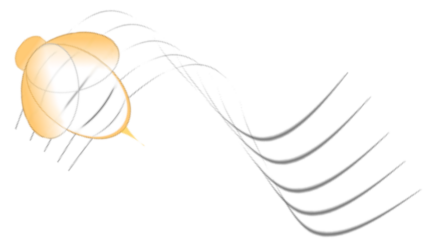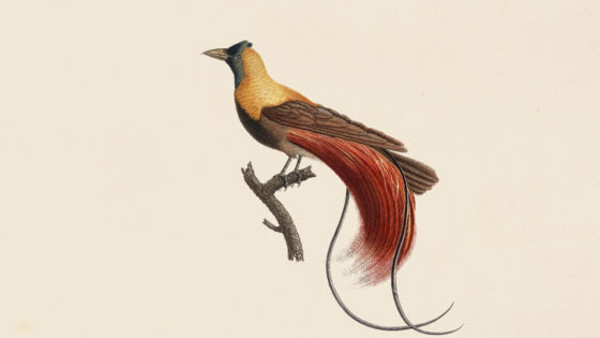Barocco di Pentecoste
Il festival di Pentecoste che si terrà a Salisburgo dal 7 al 10 giugno 2019 sarà quasi esclusivamente dedicato alla musica del XVII e XVIII secolo, con appuntamenti riservati anche alla musica sacra rinascimentale e a quella del XX secolo.
Ecco i dettagli del programma
Per maggiori informazioni https://www.salzburgerfestspiele.at/
One God, one Farinelli...
For a while, I have been thinking about dedicating one of the Whitsun Festivals to the art of the great castrati. It is no coincidence that I can realize the idea now, when discussions about the abuse of the bodily integrity of artists have become so topical.
Castrati had existed as a phenomenon in Europe since at least the 12th century and Alessandro Moreschi, of whom we even have recordings, sang in the Sistine Chapel until 1913. This deplorable tradition of mutilating thousands of boys for the sake of magnificent works of art with the profitable and, for many people, pleasurable side-effect of creating a means of quenching their lust, was therefore something that was carried out for centuries, but little questioned. As in many cases today, people exploited their positions of power, using the excuse of furthering helpless children’s careers. In many cases, parents had no choice than to consent, hoping that the remuneration, however small, would improve their miserable lives.
Bearing this in mind, I wondered whether we should celebrate the wonderful artistic achievements of that period and whether we should present the works at all. I think the answer is clear: absolutely. But, at the same time, the phenomenon should be highlighted from different points of view, with the problematic context put up for discussion.
We might also wonder how the lives of people such as Farinelli and Senesino would have developed had they not been given this ‘amazing chance’ to become the most admired singers of their age. Might they have wasted away as labourers on a Southern Italian field? Might they not have survived childhood due to hunger? Would they have married and led a quiet and happy life?
I will pay homage to the castrati at the 2019 Salzburg Whitsun Festival. Being a festival of music, I would also like to focus on the moment of artistic climax and, in a way, the beginning of the end of the castrato craze in classical music history. I hope to show how castrati made such a huge impact on music lovers of the day, through their music and their singing.
In the 1730s, London was one of the operatic capitals of the world and George Frideric Handel one of its protagonists. But in 1733, Handel had a huge row with his castrato star Senesino, who consequently left the Royal Academy of Music. A newly established and competing opera company, the Opera of the Nobility, was set up for him. Alongside Senesino, the composer Nicola Porpora and a new megastar, Carlo Broschi, known as ‘Farinelli’, were its greatest assets, drawing patrons away from Handel’s theatre. London was feverish and ‘One God, one Farinelli’, allegedly uttered by a swooning gentlewoman, became proverbial, even immortalized in Hogarth’s cycle A Rake’s Progress.
For the next four years, Handel’s Royal Academy and the Opera of the Nobility were engaged in a fierce battle for the favour of London’s opera fans. This produced music of the highest artistic order, but also a financial disaster that led to the end of the reign of Italian opera in London.
In the hope of recreating the dazzling impression of the former and avoiding the latter, I would like to propose some of the highlights that galvanized 18th-century audiences, as well as giving an overview of the art of the castrati.
At the centre of our four-day Festival, there will be a new production by Damiano Michieletto of Alcina, one of Handel’s most wonderful operas, with Gianluca Capuano and Les Musiciens du Prince. The cast will include me, Philippe Jaroussky and Sandrine Piau.
For the first time since 1735, audiences will be able to compare Alcina directly with its strongest competitor, Porpora’s Polifemo. First performed two and a half months earlier, with Farinelli heading the bill, the opera contains the outstandingly beautiful aria ‘Alto Giove’. In Salzburg, the stellar cast includes Max Emanuel Cencic and Julia Lezhneva.
The Whitsun Festival’s concert programme spans an arc from the Sistine Chapel Choir’s centuries-old tradition of vocal polyphony to Pergolesi’s poignant Stabat Mater, to which Arvo Pärt and Giacinto Scelsi respond as composers of our time. We will therefore examine the tradition of sacred music for high voices in different eras. And we also want to show how the use of the castrato voice changed towards the end of the 18th century, from exceptional virtuosity to a more expressive style, which was guided by the libretto.
There will be various concerts, with popular soloists highlighting the repertoire of some of the most famous castrati of Handel’s time. A rarely performed gem of sacred music with an Austrian connection can be discovered in Antonio Caldara’s beautiful La morte d’Abel featuring a libretto by Pietro Metastasio. The oratorio was written for Farinelli and first performed at the Hofburgkapelle in Vienna in 1732.
Needless to say, our programme features the film Farinelli, and we will organize a panel discussion on the ‘heavenly voices’ of the castrati, on whose vocal tradition the virtuosity of Western music rests.
The riveting climax of this weekend celebrating the art of the castrati will be a battle between prima donnas and primi uomini in a ‘Farinelli-Gala’, uniting some of the finest Baroque singers of our time. After all, there were many wonderful female singers who left their imprint on the age of the castrati too! Some of them, like Francesca Cuzzoni, were shrewd enough to make hugely successful appearances at both the Royal Academy of Music and the Opera of the Nobility, while the stakes for Italian opera in London were still high.
Cecilia Bartoli
Opera
George Frideric Handel (1685 - 1759)
Alcina
Dramma per musica in three acts, HWV 34
Libretto by an unknown author after the libretto to Riccardo Broschi’s L’isola di Alcina, after Ludovico Ariosto’s Orlando furioso
New production
2 Performances
07 June — 09 June
Haus für Mozart
Leading Team
- Gianluca Capuano Conductor
- Damiano Michieletto Director
- Paolo Fantin Sets
- Agostino Cavalca Costumes
- Alessandro Carletti Lighting
- rocafilm Video
- Christian Arseni Dramaturgy
Cast
- Cecilia Bartoli Alcina
- Philippe Jaroussky Ruggiero
- Sandrine Piau Morgana
- Kristina Hammarström Bradamante
- Christoph Strehl Oronte
- Alastair Miles Melisso
Ensembles
- Les Musiciens du Prince — Monaco
- Bachchor Salzburg
- Alois Glaßner Chorus Master
Nicola Porpora (1686 - 1768)
Polifemo
Dramma per musica in three acts (1735)
Libretto by Paolo Rolli
Halbszenische Aufführung
1 Performance
08 June
Felsenreitschule
Leading Team
- George Petrou Conductor
- Max Emanuel Cencic Director
Cast
- Yuri Mynenko Aci
- Max Emanuel Cencic Ulisse
- Pavel Kudinov Polifemo
- Julia Lezhneva Galatea
- Dilyara Idrisova Nerea
- Nian Wang Calipso
Ensembles
- Armonia Atenea
- Bachchor Salzburg
- Alois Glaßner Chorus Master
Gala Concert · Farinelli & Friends
1 Performance
08 June
Grosses Festspielhaus
Programme
Great baroque arias, scenes and duets by George Frideric Handel, Nicola Porpora, Johann Adolph Hasse, Riccardo Broschi and others
Artists
- Gianluca Capuano Conductor
- Rolando Villazón Presentation
- Julie Fuchs Soprano
- Patricia Petibon Soprano
- Sandrine Piau Soprano
- Nuria Rial Soprano
- Cecilia Bartoli Mezzo-soprano
- Lea Desandre Mezzo-soprano
- Vivica Genaux Mezzo-soprano
- Ann Hallenberg Mezzo-soprano
- Marie-Nicole Lemieux Alto
- Christophe Dumaux Countertenor
- Philippe Jaroussky Countertenor
- Les Musiciens du Prince — Monaco
Oratorio · La morte d’Abel
Azione sacra in two parts (1732)
Libretto by Pietro Metastasio
1 Performance
09 June
Stiftung Mozarteum — Großer Saal
Programme
Antonio Caldara
La morte d’Abel
Azione sacra in two parts
Libretto by Pietro Metastasio
Artists
- Nahuel Di Pierro Adamo
- Julie Fuchs Eva
- Christophe Dumaux Caino
- Lea Desandre Abel
- Nuria Rial Angelo
- Il canto di Orfeo
- Gianluca Capuano Conductor
- Bachchor Salzburg
- Alois Glaßner Chorus Master
Church Concert · Stabat Mater | Pärt
1 Performance
09 June
Kollegienkirche
Programme
Giacinto Scelsi
“Ave Maria” from Three Latin Prayers for countertenor
Arvo Pärt
Stabat Mater (1985) for soprano, countertenor (alto), tenor, violin, viola and violoncello
Giacinto Scelsi
“Pater Noster” from Three Latin Prayers for countertenor
Arvo Pärt
Triodion for mixed choir a cappella
Giacinto Scelsi
“Alleluja” from Three Latin Prayers for countertenor
Arvo Pärt
Seven Magnificat-Antiphones for mixed choir a capella
Artists
- Peter Phillips Conductor
- The Tallis Scholars
Sacred Concert · Stabat Mater | Pergolesi
1 Performance
10 June
Stiftung Mozarteum — Großer Saal
Programme
Antonio Vivaldi
Nisi Dominus
after psalm 126 for contralto, strings and basso continuo
Concerto for violin, strings and cembalo in D, RV 208 – “Grosso Mogul” (around 1710)
Giovanni Battista Pergolesi
Stabat Mater
Artists
- Andrés Gabetta Conductor / Violin
- Cecilia Bartoli Mezzo-soprano
- Franco Fagioli Countertenor
- Cappella Gabetta
Cathedral Concert · Cappella Musicale Pontificia Sistina
1 Performance
10 June Dom
Programme
Anonymous
Introitus “Rorate caeli” (Gregorian chant)
Giovanni Pierluigi da Palestrina
Motets
“Ad te levavi oculos meos”
“Super flumina Babylonis”
“Adoramus te Christe”
“Sicut cervus”
“Dum complerentur dies Pentecostes”
“Tu es Petrus”
Orlando di Lasso
Magnificat
Giovanni Maria Nanino
Motet “Hodie nobis caelorum Rex”
Gregorio Allegri
Miserere
Tomás Luis de Victoria
“Sepulto Domino” from Officium Hebdomadæ Sanctæ
Artists
- Massimo Palombella Conductor
- Cappella Musicale Pontificia SISTINA
Podiumsgespräch · Himmlische Stimmen
Panel discussion moderated by Jürgen Kesting
1 Performance
08 June
SalzburgKulisse
Panel discussion
moderated by Jürgen Kesting (Journalist, Music critic and Author)
with
Jochen Kowalski (Altus)
Corinna Herr (Musicologist, Ruhr-Universität Bochum)
Bernhard Richter (Medical specialist for phoniatry and pedaudiology, Director of the Freiburger Institut für Musikermedizin)
and others
Film · Farinelli il Castrato
A film by Gérard Corbiau (F, I, B 1994)
Music by George Frideric Handel, Riccardo Broschi, Giovanni Battista Pergolesi, Johann Adolph Hasse, Nicola Porpora
2 Performances
08 June — 09 June
DAS KINO


